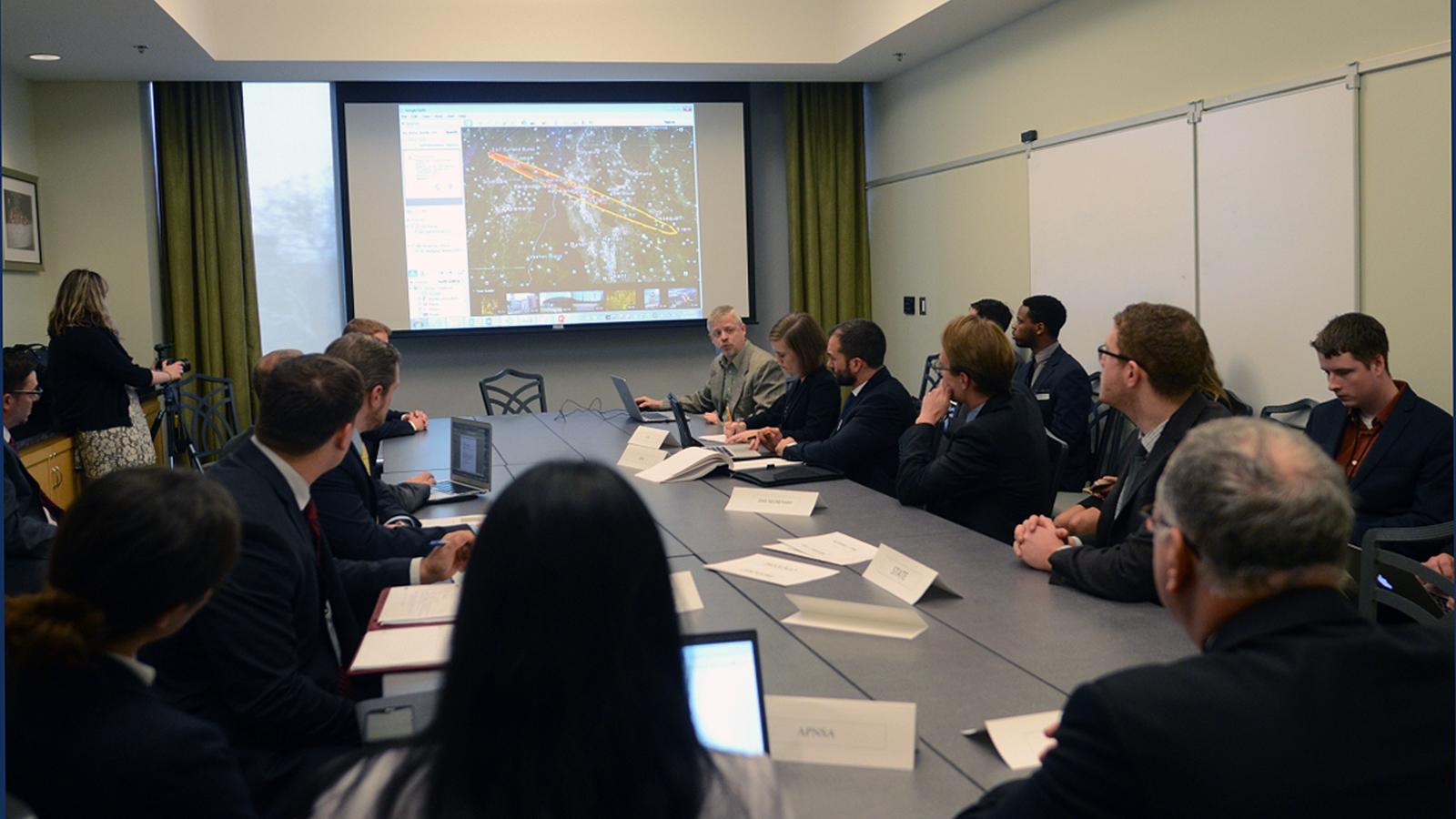Security and Governance
Good governance, democratic decision-making, rule of law, and stability and viability of international institutions and organizations have all become highly contested dimensions of international, national, and human security with the rise of hybrid and cyber-warfare, grey zone conflict, and information operations. This contestation is driven by a range of historical, political, economic, cultural, social, and technological forces that have created new avenues for state and non-state actors to attack international and democratic governance in service of their agendas.
The rise of “sharp power” employed by state actors reflects a new, increasingly adopted, modality of security policy targeting governance from the bottom up by driving anti-establishment/anti-expertise populism, nationalism, democratic dissatisfaction, and political and cultural polarization. Citizens, institutions, and organizations at all levels are challenged to manage these new arenas of conflict, waged across a full spectrum of means and methods, as these factors have the potential to influence and destabilize established national and international institutions and norms that govern security broadly defined.
The Security and Governance cluster within the Mershon Center for International Security Studies draws upon expertise from its Comparative National Elections Project and the Eurasian Security and Governance Program to address these security challenges. Additionally, the cluster draws upon affiliated experts in international relations, comparative politics, diplomacy, history, law, democratic governance, public policy, security, intelligence, psychology, communication, and cybersecurity from various programs in the College of Arts and Sciences, Glenn College of Public Affairs, Moritz College of Law, and College of Engineering.
Leading this research cluster are Dakota Rudesill, associate professor of law; Alexander Thompson, professor of political science; and Thomas Wood, assistant professor of political science.
Photo: The Ohio State University National Security Simulation 2017, by Moritz College of Law. Project organized by Dakota Rudesill with support from the Mershon Center.

